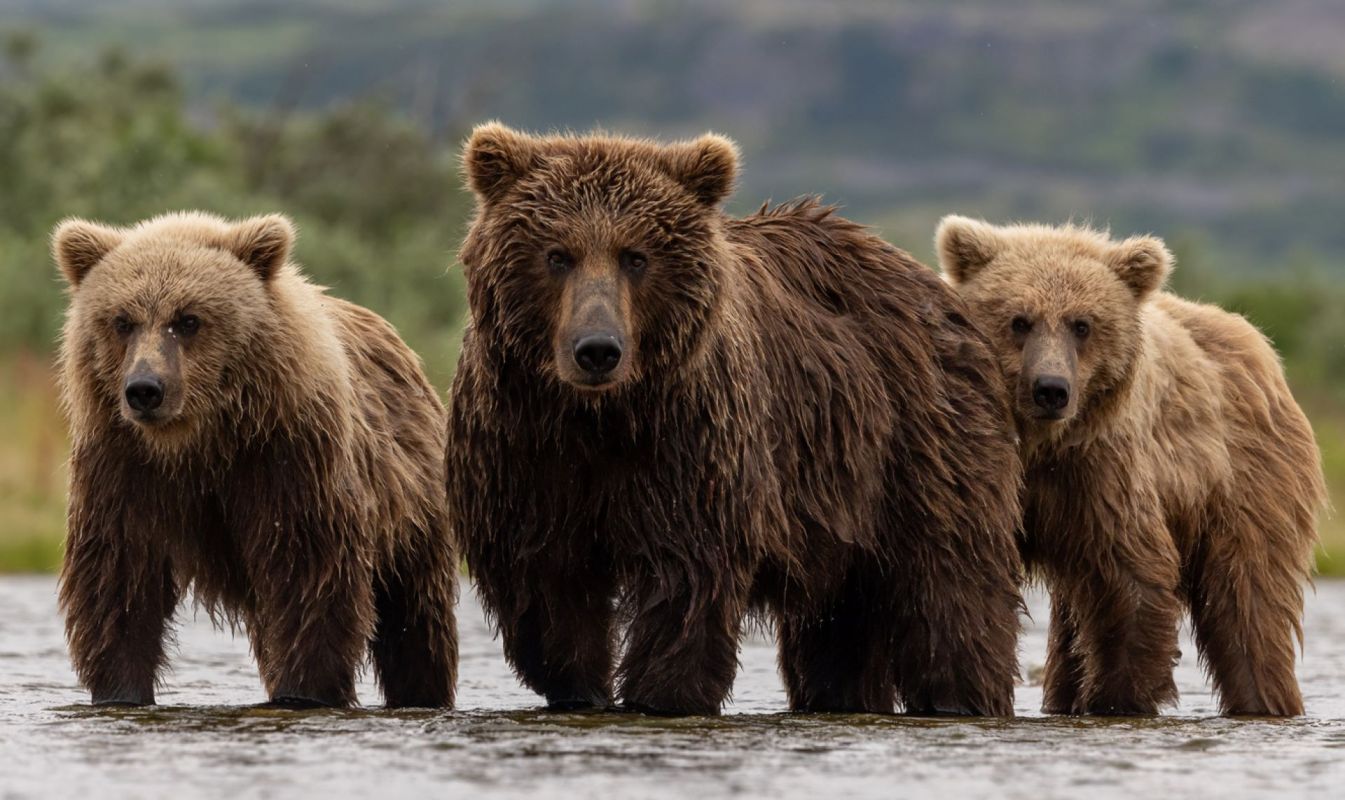Inuvialuit hunters in the western Canadian Arctic region are reporting increased grizzly bear sightings — a concerning development likely caused by the overheating of our planet and changing weather patterns that have resulted from human-caused pollution.
"There is a much longer melting and growing season. Areas that were tundra or barren for the most part are now grasslands and have other types of vegetation. Willow, for instance, are starting to establish themselves and grow higher or taller," Vernon Amos, chairman of the Inuvialuit game council, told CBC.
As a result, the grizzly bears are expanding from their traditional habitats, showing up farther north than they have been seen before.
"Something pretty big is going on and we don't know why," Doug Clark, a University of Saskatchewan associate professor in the School of Environment and Sustainability, told CBC, adding that while rising temperatures have expanded the bears' habitats in the short term, "what that means in the long term, we don't really know."
Brian Starzomski, director of environmental studies at the University of Victoria, pointed out that although changing temperatures are one factor, they are not the only one. Invasive species, habitat destruction, the severing of migration routes, and atmosphere pollution, all caused by humans, have also likely played a role.
"There's a lot of pressure on nature at the moment. We talk a lot about climate change, but all of these things add up in the matter of human impact on the environment," he said.
Bears are far from the only animals that have started popping up in new places. A tropical wetland bird was recently sighted in Pennsylvania, far from its natural environment of Florida, Mexico, and South America.
These types of unusual sightings may be exciting (or frightening, depending on the animal) for locals, but they do not bode well for our planet. Animals migrating to new places could upset the balance of local ecosystems.
Many animals that are not able to migrate to friendlier climates simply die off. In October, the U.S. Fish and Wildlife Service declared 21 species extinct. North America alone has lost 3 billion migratory birds over the past 50 years, while Canada's polar bear population is plummeting.
Join our free newsletter for cool news and cool tips that make it easy to help yourself while helping the planet.









